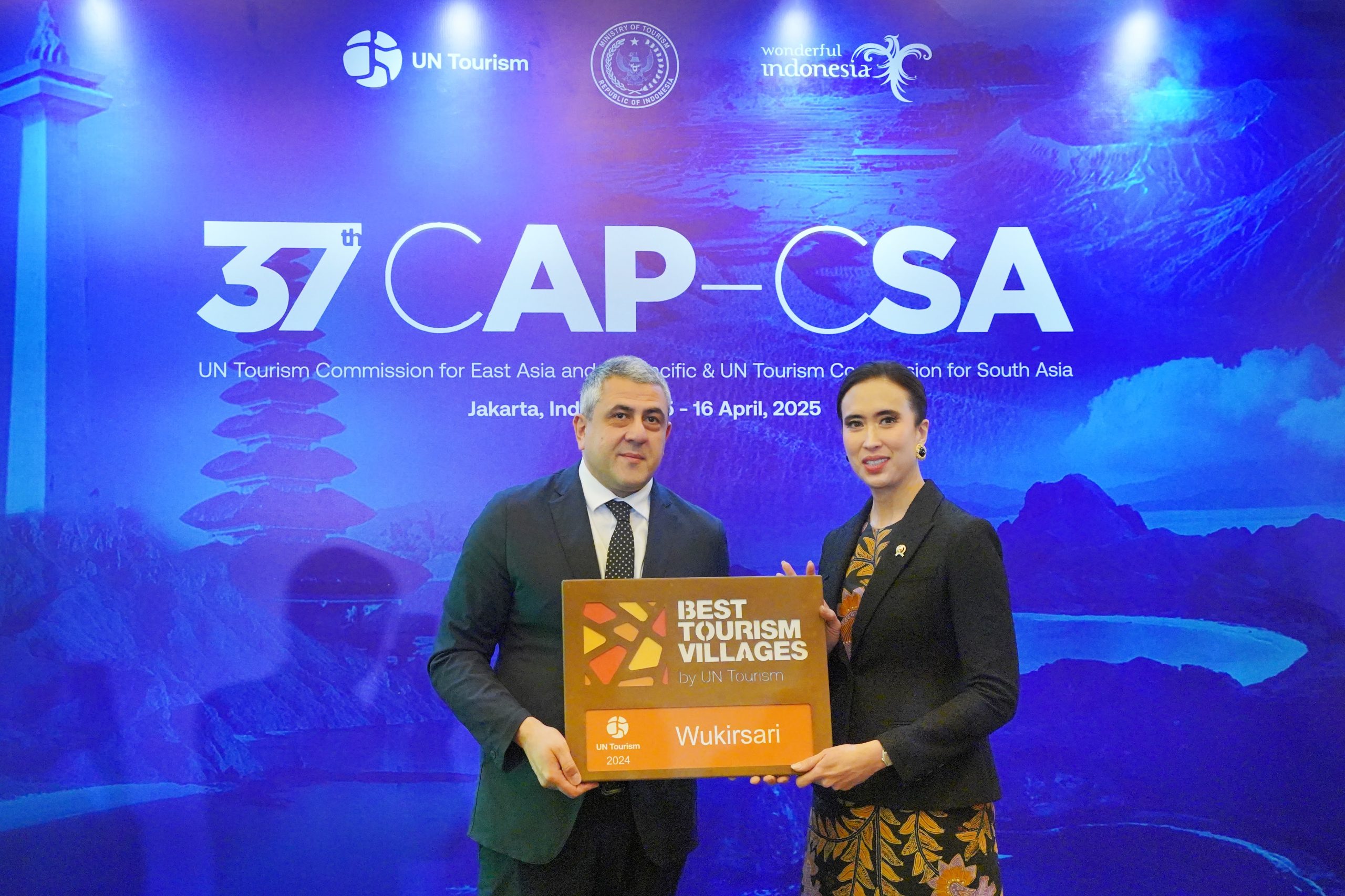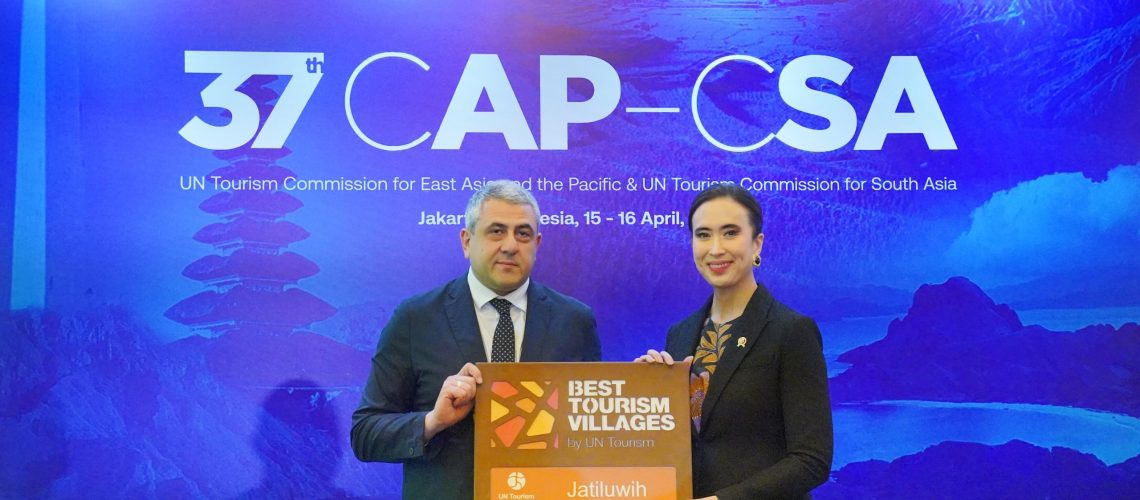Indonesia’s dedication to rural tourism received special attention at the 37th UN Tourism Joint Commission for East Asia and the Pacific (CAP) and South Asia (CSA), held in Jakarta recently. During the event, UN Tourism Secretary-General Zurab Pololikashvili took the opportunity to felicitate Indonesia’s two recognised villages under the Best Tourism Villages by UN Tourism 2024 initiative — Jatiluwih and Wukirsari. The recognition was received on behalf of the villages by Indonesia’s minister of tourism Widiyanti Putri Wardhana, highlighting the country’s continued leadership in promoting sustainable and community-based tourism.
While the official recognition was announced in November 2024 during the Best Tourism Villages 2024 announcement ceremony in Colombia, the event in Jakarta served as a meaningful moment to celebrate these two outstanding rural destinations on home soil.
Jatiluwih: A Living Heritage in Harmony with Nature
Located in Bali’s Tabanan Regency, Jatiluwih Tourism Village stands as a beacon of sustainable rural tourism. Nestled on the slopes of Mount Batukaru, the village is known for its dramatic rice terraces and deep spiritual traditions. It was designated a UNESCO World Cultural Heritage site in 2012 for preserving the ancient Subak irrigation system, a communal agricultural method dating back to the 11th century. Rooted in the Balinese philosophy of Tri Hita Karana, which emphasizes harmony between people, nature, and spirituality, Jatiluwih has become a powerful symbol of how traditional practices can thrive alongside modern tourism.
Jatiluwih has embraced a holistic tourism model that empowers its local community through ecotourism, educational experiences, and agritourism. Visitors are welcomed into the rhythm of daily life—learning about farming, participating in local rituals, and experiencing the cultural heartbeat of Bali. The village’s ongoing efforts to develop a Cultural Heritage Living Museum are further testament to its vision of preserving its identity while offering meaningful, immersive travel experiences.
Learn more about Jatiluwih Tourism Village →

Wukirsari: A Batik Village Leading by Example
Just 17 kilometers south of Yogyakarta lies Wukirsari Tourism Village, a community where cultural heritage and environmental stewardship go hand in hand. Known for its legacy of Batik Tulis, Wukirsari has transformed from a village of batik artisans into a model for sustainable rural tourism. The Giriloyo Batik Village, located within Wukirsari, invites visitors to explore the intricate art of hand-drawn batik through interactive workshops and storytelling, ensuring the transmission of this age-old craft across generations.
What sets Wukirsari apart is its firm commitment to sustainability. The village is a pioneer in zero-waste tourism, championing eco-conscious practices through local initiatives such as Becik Resik Karangkulon, which promotes plastic-free markets, leaf-based packaging, and natural waste management systems. Its certification by the Indonesia Sustainable Tourism Council reflects its leadership in balancing cultural preservation with environmental responsibility. At the same time, Wukirsari’s adoption of ISO-aligned quality standards has helped establish a consistent and welcoming visitor experience that is both professional and personal.
Learn more about Wukirsari Tourism Village →
To explore more recognised villages from around the world, visit the
Best Tourism Villages by UN Tourism website →


